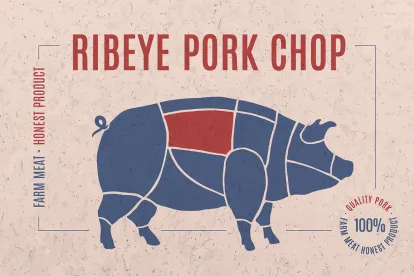Recently, a federal district court judge in the Southern District of New York dismissed claims asserted under New York General Business Law § 349 on behalf of a putative class of vegetarian customers of Buffalo Wild Wings. The court’s decision found that although the plaintiff had standing to bring her claims, her allegations did not point to an “actual injury” sufficient to state a claim under section 349. Plaintiff has appealed.
The complaint in Borenkoff v. Buffalo Wild Wings, 2018 WL 502680 (S.D.N.Y. Jan. 19, 2018) alleged that defendant uses beef tallow to fry non-meat food items like mozzarella sticks and french fries, whereas the “industry standard” is to use non-beef cooking oil to fry such items. According to plaintiff, a reasonable consumer would not expect non-meat items to be fried in beef tallow. Buffalo Wild Wings’ failure to include beef tallow among the listed menu ingredients for its non-meat food items therefore allegedly constituted a “material misrepresentation and omission” under section 349. Plaintiff claimed she would not have ordered or consumed the mozzarella sticks and fries had she known they were prepared using beef tallow.
In evaluating defendant’s motion to dismiss, Judge Katherine Forrest found that injury had been adequately pled for Article III standing purposes, but not for the purpose of stating a claim under section 349. The key to the court’s decision was Second Circuit authority holding that an alleged injury sufficient for Article III standing “need not be capable of sustaining a valid cause of action.”
As for Article III standing, the court held that a plaintiff must allege a “concrete and particularized” “injury in fact.” The court found that the injury in fact plaintiff pled—that plaintiff would not have purchased the food if she had known it was fried using beef tallow—was a “pure economic injury” in which her claimed damages were the amount of money she paid for the food. The court noted that numerous courts, including the Third and Fifth Circuits, have found similar allegations insufficient to confer standing without any further allegation that the food items received were defective in some way, or objectively worth less than the amount plaintiff paid. As the court put it, “Borenkoff paid for french fries and mozzarella sticks, and that is ultimately what she received.” But in light of Second Circuit authority, and despite expressing “serious reservations,” the court found plaintiff’s alleged injury in fact sufficiently “concrete and particularized” to confer standing.
Nonetheless, the court found plaintiff’s alleged injury insufficient to state a claim under section 349. Judge Forrest noted that under New York law, “the loss of the purchase price of an item,” standing alone, does not satisfy the “actual injury” element of a section 349 claim. See, e.g., Small v. Lorillard Tobacco, 94 N.Y.2d 43, 55-56 (N.Y. 1999). The court found that plaintiff needed to show more to state a section 349 claim—e.g., that the food she received harmed her, that the food was defective in some way, or that the price of the food was inflated as a result of using beef tallow. As plaintiff had not made such further allegations, the court dismissed the section 349 claim.
In addition, the court also dismissed plaintiff’s unjust enrichment claim as merely “duplicative” of the section 349 claim.




 />i
/>i

